
Podgórze: Krakow's Enigmatic Gem
Nestled on the southern bank of the Vistula River, Podgórze is a neighborhood steeped in history and brimming with a unique charm. Once a separate city, it is now an integral part of Krakow, offering tourists a rich tapestry of experiences that blend the past and the present. Podgórze is perhaps most famously known for its connection to World War II history. The district was the site of the Jewish Ghetto, and today, visitors can explore the Ghetto Heroes Square and the haunting remnants of the ghetto walls. The nearby Oskar Schindler's Enamel Factory Museum provides an immersive journey through this poignant past. However, Podgórze is not all about history. The neighborhood has undergone a renaissance, becoming a vibrant hub for arts and culture. The MOCAK Museum of Contemporary Art is a must-visit for art enthusiasts, showcasing a dynamic collection of modern works. For a breath of fresh air, head to the scenic Krakus Mound, which offers panoramic views of the city. Podgórze also caters to those looking to indulge in culinary delights. The area is home to a variety of cafes, restaurants, and local markets where you can sample traditional Polish cuisine or enjoy a leisurely coffee. With its eclectic mix of history, art, and gastronomy, Podgórze promises a memorable visit for every traveler.
Local tips in Podgórze
- Visit early in the day to avoid crowds at popular historical sites like the Schindler's Factory and the Ghetto Heroes Square.
- Wear comfortable walking shoes as the neighborhood is best explored on foot.
- Don't miss the Krakus Mound for a stunning panoramic view of the city, especially at sunset.
- Try the local markets for authentic Polish snacks and souvenirs.
Podgórze: Krakow's Enigmatic Gem
Nestled on the southern bank of the Vistula River, Podgórze is a neighborhood steeped in history and brimming with a unique charm. Once a separate city, it is now an integral part of Krakow, offering tourists a rich tapestry of experiences that blend the past and the present. Podgórze is perhaps most famously known for its connection to World War II history. The district was the site of the Jewish Ghetto, and today, visitors can explore the Ghetto Heroes Square and the haunting remnants of the ghetto walls. The nearby Oskar Schindler's Enamel Factory Museum provides an immersive journey through this poignant past. However, Podgórze is not all about history. The neighborhood has undergone a renaissance, becoming a vibrant hub for arts and culture. The MOCAK Museum of Contemporary Art is a must-visit for art enthusiasts, showcasing a dynamic collection of modern works. For a breath of fresh air, head to the scenic Krakus Mound, which offers panoramic views of the city. Podgórze also caters to those looking to indulge in culinary delights. The area is home to a variety of cafes, restaurants, and local markets where you can sample traditional Polish cuisine or enjoy a leisurely coffee. With its eclectic mix of history, art, and gastronomy, Podgórze promises a memorable visit for every traveler.
Iconic landmarks you can’t miss
Krakus Mound
Discover the enchanting Krakus Mound, a historical landmark offering stunning views and rich folklore in the heart of Kraków.
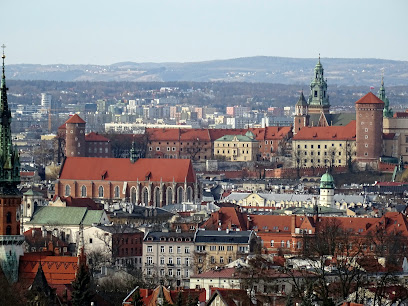
Park im.Wojciecha Bednarskiego w Podgórzu
Experience the serene beauty of Park im. Wojciecha Bednarskiego in Podgórze, Kraków - a tranquil escape rich in history and natural charm.
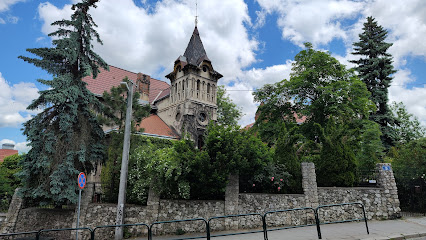
Podgórze Market Square
Experience the charm of Podgórze Market Square, a vibrant hub in Kraków featuring stunning architecture, rich history, and a lively atmosphere.
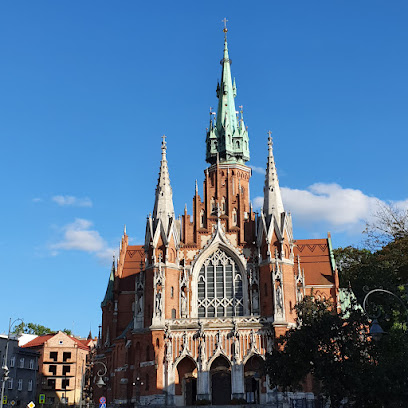
The Grey House
Discover the haunting history of The Grey House in Kraków, a poignant memorial to the Jewish community during WWII and a testament to resilience.
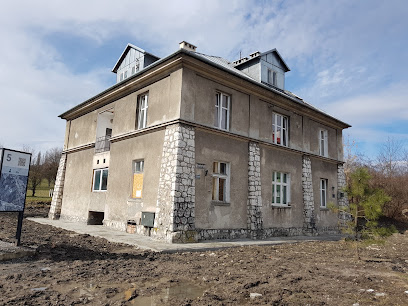
Wapiennik
Explore Wapiennik, a unique historical landmark in Kraków's Podgórze, where rich history meets stunning natural beauty.
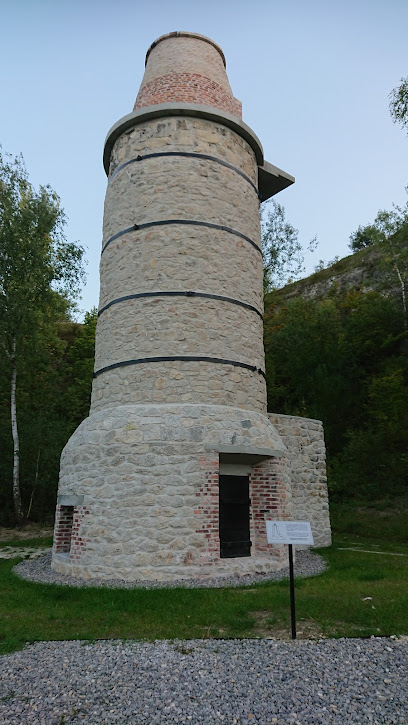
Dworek Pod Lipkami
Explore Dworek Pod Lipkami, a historical landmark in Kraków's Podgórze district, where culture and nature seamlessly intertwine.
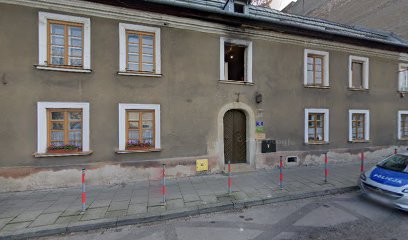
Old Cemetery of the Podgórze Jewish Community
Explore the Old Cemetery of the Podgórze Jewish Community, a poignant historical landmark reflecting Kraków's rich Jewish heritage.
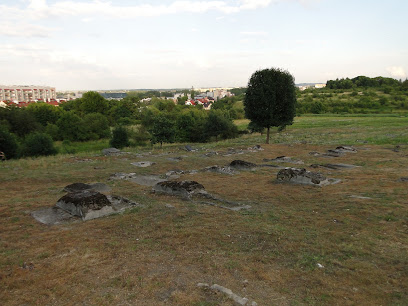
Mural Historii Podgórza
Explore the vibrant murals of Podgórze, a historical landmark in Kraków that brings the rich past of the district to life through stunning artistry.
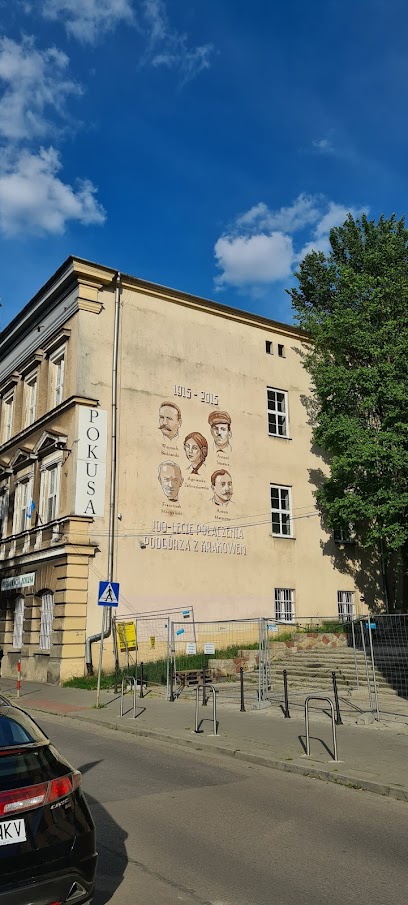
Zabytkowy Budynek
Explore Zabytkowy Budynek, a historic treasure in Kraków, showcasing the city's rich heritage and architectural beauty.
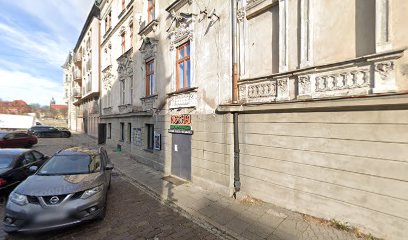
Tablica pamiątkowa ks Władysław Gurgacz
Explore the Tablica pamiątkowa ks Władysław Gurgacz in Kraków, a historical memorial reflecting Poland's rich cultural heritage and resilience.
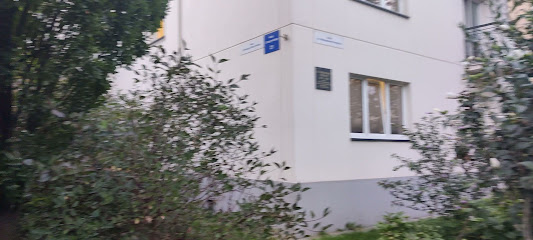
Unmissable attractions to see
Sukiennice
Explore Sukiennice, Kraków's historic Cloth Hall, a vibrant fusion of art, culture, and trade in the heart of the Main Market Square.
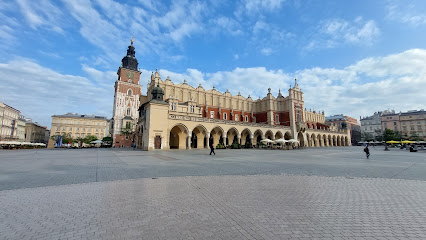
Krakus Mound
Discover the history and breathtaking views of Krakus Mound, a must-see landmark in Kraków that offers a glimpse into the city's past.
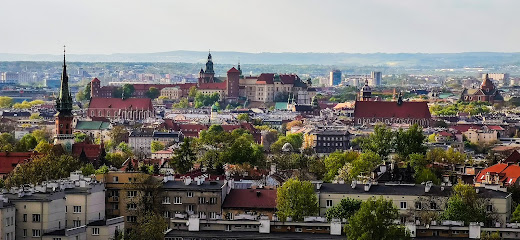
Park im.Wojciecha Bednarskiego w Podgórzu
Explore the serene Park im. Wojciecha Bednarskiego in Podgórze, a perfect blend of nature, history, and relaxation in the heart of Kraków.
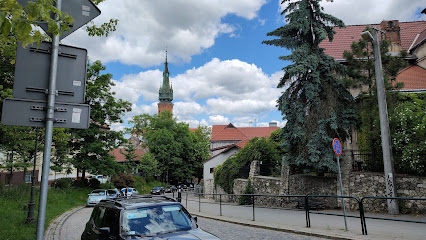
Remains of the Ghetto wall
Explore the Remains of the Ghetto Wall in Kraków, a historical landmark that commemorates the Jewish community's poignant past during World War II.
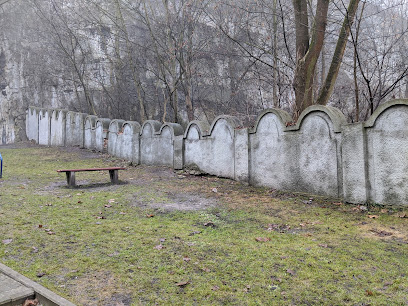
Podgórze Market Square
Explore the historic charm of Podgórze Market Square in Kraków, where stunning architecture meets vibrant local culture.
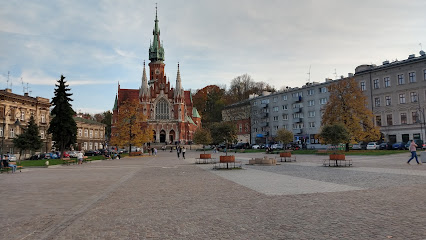
Colorful staircase
Explore the Colorful Staircase in Kraków, a vibrant artistic landmark perfect for photos and enjoying the scenic beauty of the city.
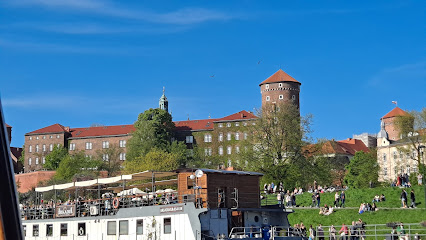
Golgota Podgórska, Ogród Rzeźb
Discover Golgota Podgórska, a tranquil sanctuary in Kraków, blending nature and spirituality for a unique tourist experience.
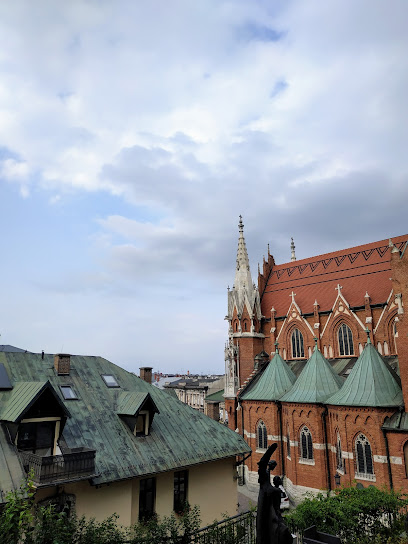
Mural Krok za naturą
Discover the vibrant Mural Krok za naturą in Kraków, where art and nature intertwine in a stunning display of creativity and culture.
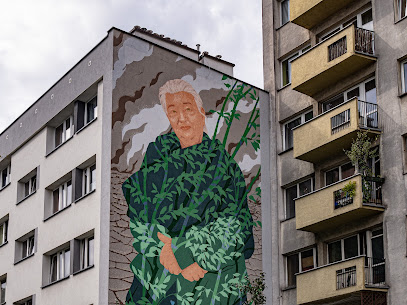
Kapliczka przydrożna
Explore the Kapliczka przydrożna, a serene shrine in Kraków's Podgórze, where local tradition meets tranquil beauty.
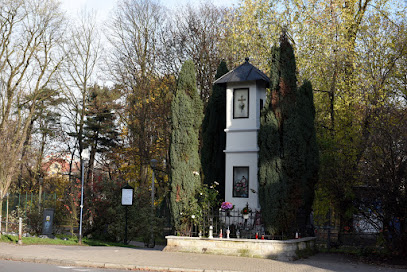
Essential places to dine
Goose Restaurant
Discover authentic Polish cuisine at Goose Restaurant in Kraków's Podgórze district—perfect for family gatherings and food lovers.
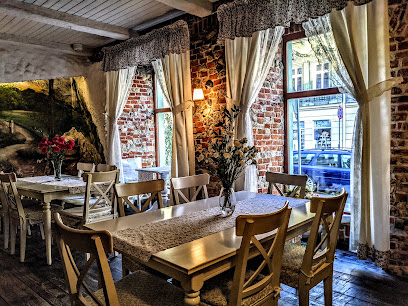
Makaroniarnia
Discover authentic Italian flavors at Makaroniarnia in Kraków – home to delicious handmade pasta and warm hospitality.
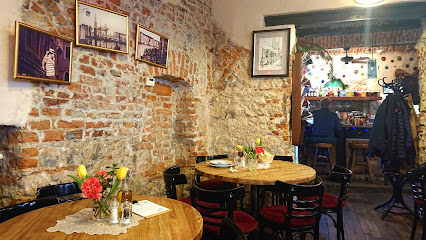
Euskadi Restaurant
Discover authentic Basque cuisine at Euskadi Restaurant in Kraków – where tradition meets taste in every dish.
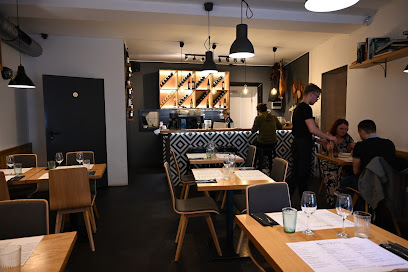
Primo
Experience authentic Italian cuisine at Primo in Kraków's Podgórze district - where every dish tells a story.
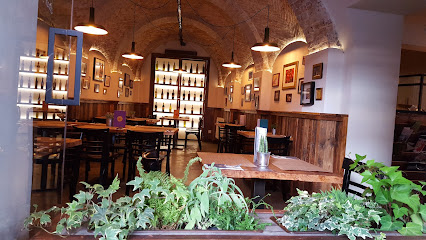
ZaKładka -Bistro de Cracovie
Discover the flavors of France blended with Polish cuisine at ZaKładka - Bistro de Cracovie in Kraków.
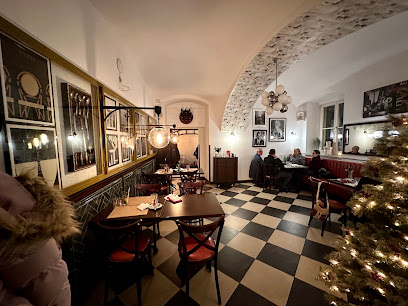
Ogniem i Mieczem Restaurant
Experience authentic Polish cuisine at Ogniem i Mieczem Restaurant in Kraków - where tradition meets taste in a charming setting.
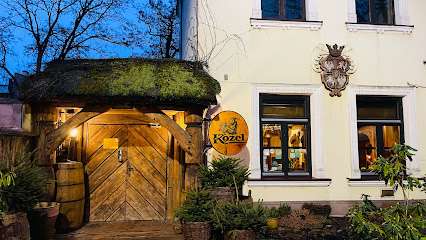
Green Up
Experience authentic Polish and European cuisine at Green Up in Kraków, where delicious meals meet a cozy atmosphere for the whole family.
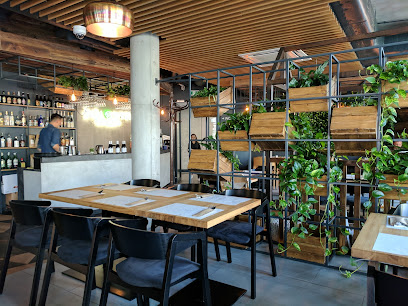
Restauracja Delecta
Experience the essence of Italy at Restauracja Delecta in Kraków - where authentic cuisine meets warm hospitality.
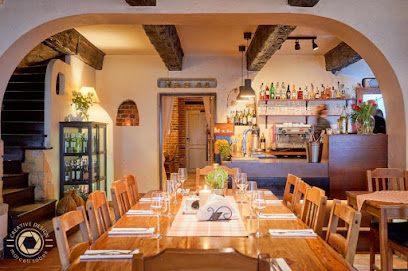
Mazi
Discover Mazi in Kraków: Where Traditional Polish Cuisine Meets Modern Flavors in a Cozy Atmosphere.
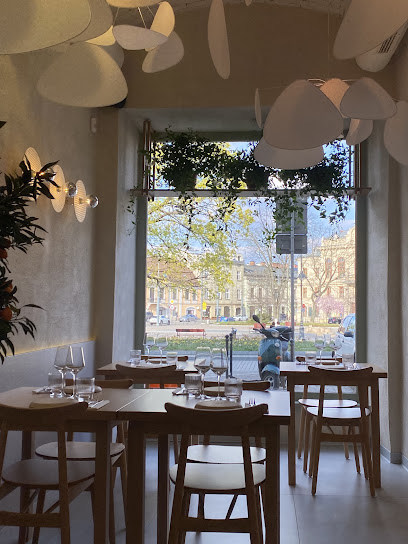
Restauracja Qubus Kraków
Experience authentic Polish cuisine at Qubus Kraków, where tradition meets modern elegance along the Vistula River.

Markets, malls and hidden boutiques
Galeria Kazimierz
Discover Galeria Kazimierz, Kraków's premier shopping mall with a diverse range of stores and dining options, perfect for a day of leisure and retail therapy.
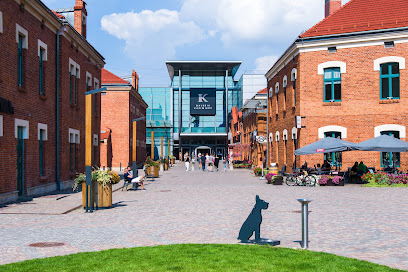
Krakow Fair Shopping Center
Explore the Krakow Fair Shopping Center for a unique shopping experience with a blend of local charm and modern retail offerings.
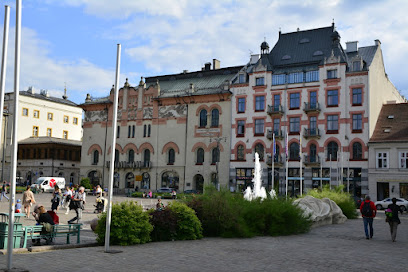
Japier Papier
Explore Japier Papier in Kraków: A treasure trove of unique gifts, handmade crafts, and local artistry that embodies Polish culture.
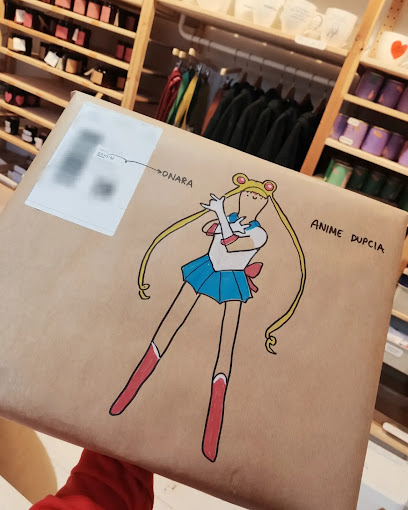
Things alone
Explore the artistic treasures of Things Alone, a unique pottery store and art gallery in the heart of Kraków's Podgórze district.
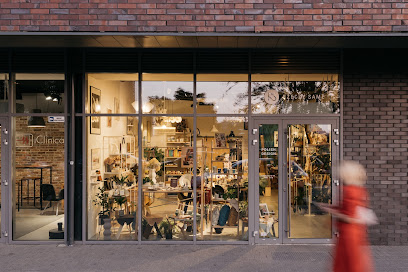
The Hive Store
Discover Kraków's fashion scene at The Hive Store, offering unique clothing and local designer pieces in a charming atmosphere.
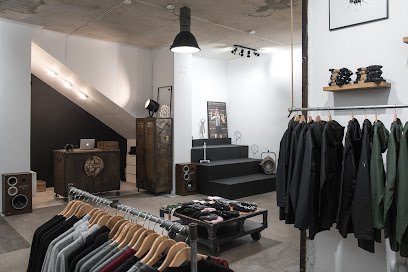
Szpeje
Explore Szpeje in Kraków: A unique poster and used book store offering eclectic art and literature treasures in a charming atmosphere.
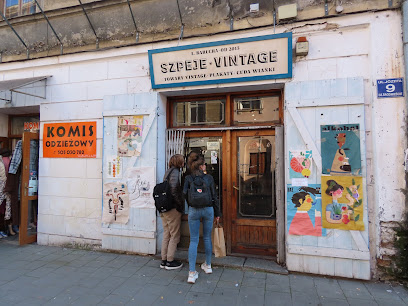
Aggi Outlet
Explore the vibrant fashion scene at Aggi Outlet in Kraków, where trendy clothing meets local culture for a unique shopping experience.
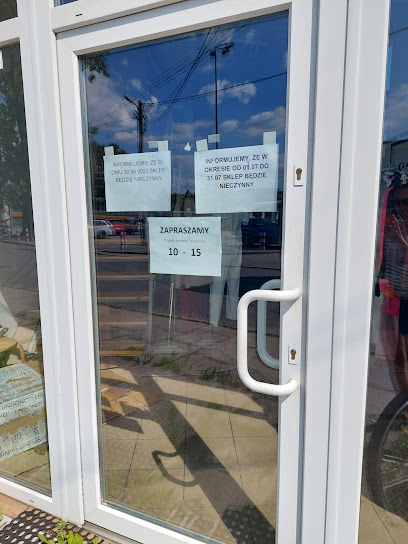
Mi-Mat. Bębenek A.
Discover unique headwear at Mi-Mat. Bębenek A., a charming hat shop in Kraków's Podgórze district, perfect for tourists seeking stylish souvenirs.
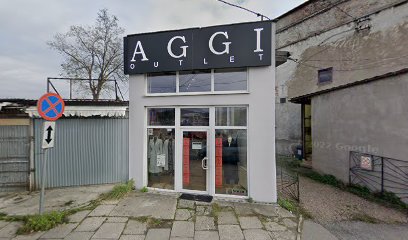
Faame
Explore Faame in Kraków for stylish women's clothing that blends elegance and contemporary fashion, perfect for every occasion.
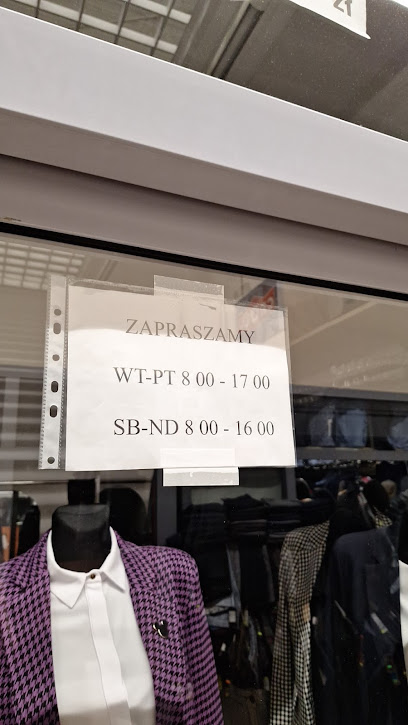
Your Fashion
Explore unique styles at Your Fashion in Kraków’s Podgórze district, where local designs meet modern trends in a chic shopping experience.
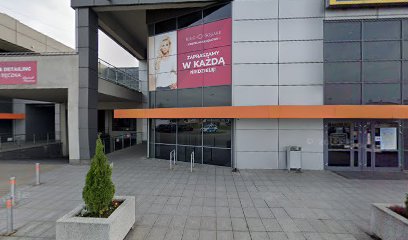
Essential bars & hidden hideouts
Ulica Krokodyli Pub & Cafe
Discover the unique charm of Ulica Krokodyli Pub & Cafe, a vibrant spot in Kraków for drinks and socializing amidst quirky decor.
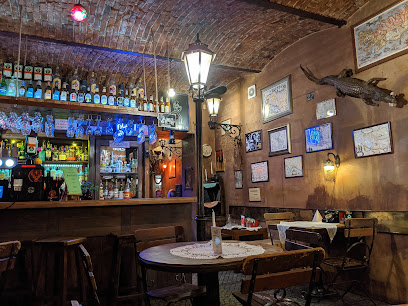
Drukarnia Klub
Experience the lively atmosphere of Drukarnia Klub in Kraków, where coffee culture meets electrifying nightlife, perfect for every traveler.
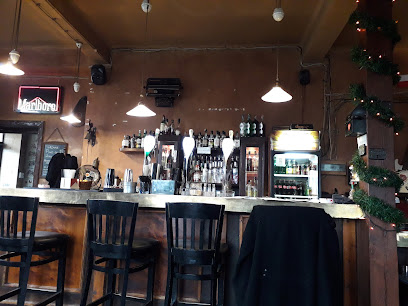
Salute! Bar
Experience the vibrant atmosphere and exquisite flavors at Salute! Bar, a top destination for drinks and dining in Kraków's Podgórze district.
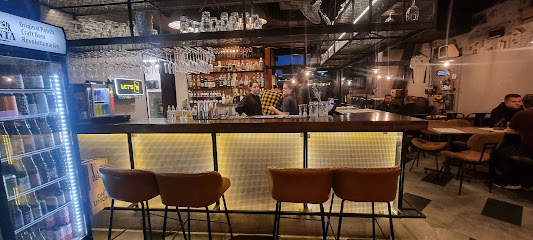
Bar Krakowski
Discover the authentic flavors of Poland at Bar Krakowski, a cozy bar and restaurant in the heart of Podgórze, Kraków.
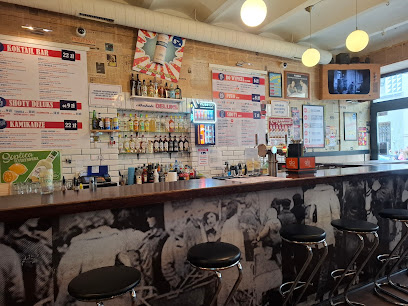
Pub SPOKO Podgórze Kraków
Discover the vibrant atmosphere and delectable offerings at Pub SPOKO in Podgórze, Kraków – a must-visit for food and drink enthusiasts.
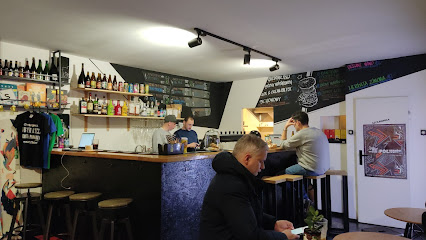
bar .punkt
Discover Bar .punkt, a lively bar in Kraków’s Podgórze district, offering exquisite cocktails, coffee, and a vibrant atmosphere for socializing.
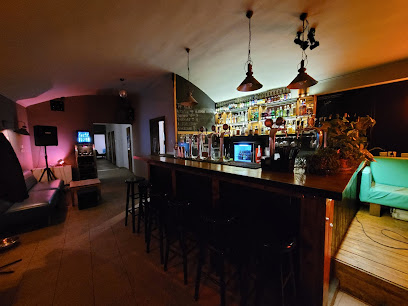
BAR WY
Discover BAR WY in Kraków: a cozy coffee shop and wine bar offering a unique blend of relaxation and cultural charm along the Vistula River.
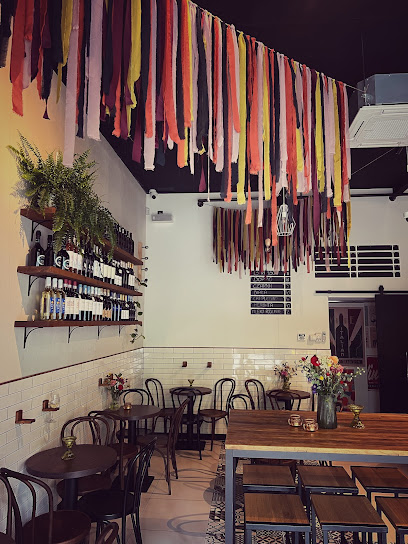
ULTRA bar
Discover ULTRA Bar in Kraków: A lively cocktail bar and party planner, perfect for enjoying crafted drinks and vibrant nightlife.
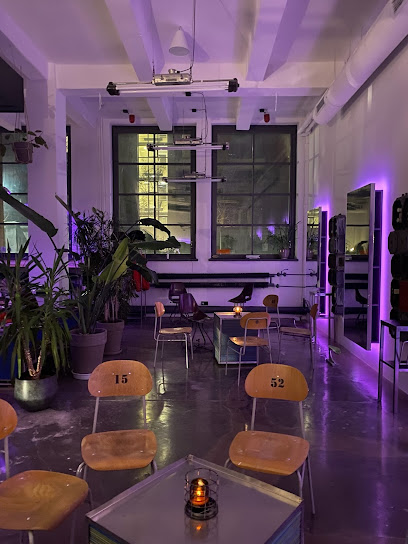
Nu
Discover the essence of Kraków's nightlife at Nu, where expertly crafted cocktails meet a stylish ambiance for the perfect evening out.
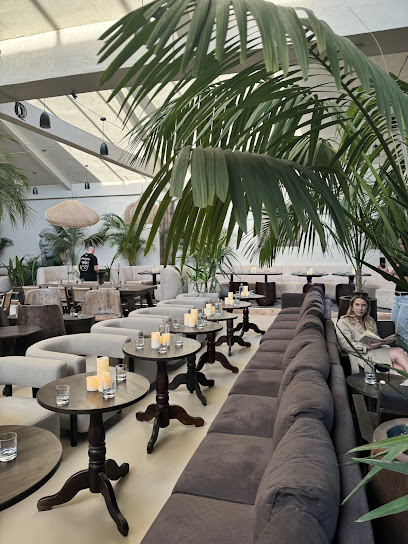
Lipowa 1
Experience the vibrant nightlife of Kraków at Lipowa 1, a cozy bar offering creative cocktails and a warm atmosphere.

Local Phrases
-
- HelloCześć
[cheshch] - GoodbyeDo widzenia
[do veedzenia] - YesTak
[tak] - NoNie
[nye] - Please/You're welcomeProszę
[prosheh] - Thank youDziękuję
[dzyen-koo-yeh] - Excuse me/SorryPrzepraszam
[pzhe-prasham] - How are you?Jak się masz?
[yak sheh mash] - Fine. And you?Dobrze. A ty?
[dob-zheh. ah ti] - Do you speak English?Czy mówisz po angielsku?
[chi moovish po an-gyel-skoo] - I don't understandNie rozumiem
[nye ro-zoo-myem]
- HelloCześć
-
- I'd like to see the menu, pleaseChciałbym zobaczyć menu, proszę
[hchiah-wim zoh-bach-chich meh-noo, pro-sheh] - I don't eat meatNie jem mięsa
[nye yem myen-sa] - Cheers!Na zdrowie!
[na zdrov-yeh] - I would like to pay, pleaseChciałbym zapłacić, proszę
[hchiah-wim zap-wa-cheech, pro-sheh]
- I'd like to see the menu, pleaseChciałbym zobaczyć menu, proszę
-
- Help!Pomocy!
[po-mo-tsi] - Go away!Idź sobie!
[eedzh so-byeh] - Call the Police!Zadzwoń po policję!
[zadz-von po po-lit-syeh] - Call a doctor!Zadzwoń po lekarza!
[zadz-von po leh-kar-za] - I'm lostZgubiłem się
[zgoo-byem sheh] - I'm illJestem chory
[yeh-stem kho-ri]
- Help!Pomocy!
-
- I'd like to buy...Chciałbym kupić...
[hchiah-wim koo-peech] - I'm just lookingTylko się rozglądam
[tzy-ko sheh rozh-gwon-dam] - How much is it?Ile to kosztuje?
[ee-leh to kosh-too-yeh] - That's too expensiveTo za drogie
[toh zah dro-gee-eh] - Can you lower the price?Czy możesz obniżyć cenę?
[chi moo-zhesh ob-nee-zhich cheh-neh]
- I'd like to buy...Chciałbym kupić...
-
- What time is it?Która jest godzina?
[ktoh-ra yest go-dzhee-nah] - It's one o'clockJest pierwsza
[yest pyerv-shah] - Half past (10)Pół do dziesiątej
[poow doh dzyes-yont-ey] - MorningRano
[rah-no] - AfternoonPopołudnie
[po-po-woo-dnyeh] - EveningWieczór
[vyech-oor] - YesterdayWczoraj
[v-cho-rai] - TodayDzisiaj
[dzyee-sai] - TomorrowJutro
[yoo-tro] - 1Jeden
[yeh-den] - 2Dwa
[dva] - 3Trzy
[tshi] - 4Cztery
[ch-teh-ri] - 5Pięć
[pyench] - 6Sześć
[sheshch] - 7Siedem
[shyeh-dem] - 8Osiem
[oh-shyem] - 9Dziewięć
[dzyev-nye-nt] - 10Dziesięć
[dzye-shyench]
- What time is it?Która jest godzina?
-
- Where's a/the...?Gdzie jest...
[gdzhe yest] - What's the address?Jaki jest adres?
[yah-ki yest ah-dresh] - Can you show me (on the map)?Czy możesz mi pokazać (na mapie)?
[chi moo-zhesh mee po-ka-zach (na mah-pee-eh)] - When's the next (bus)?Kiedy jest następny (autobus)?
[kyeh-dy yest nas-tem-ny (ow-toh-boos)] - A ticket (to ....)Bilet (do ....)
[bee-let (do)]
- Where's a/the...?Gdzie jest...
History of Podgórze
-
Podgórze, located across the Vistula River from Kraków's historic center, was officially established in 1784 when it was granted city rights by the Austrians. Initially, it was a separate town that served as a hub for trade and commerce, benefiting from its strategic position along trade routes. The area flourished with the establishment of various industries, including brewing, which played a significant role in its economic development.
-
The 19th century marked a period of significant industrial growth in Podgórze, particularly during the Austrian partition of Poland. The construction of factories and mills attracted a diverse population, including Polish, Jewish, and German communities. This industrial boom was accompanied by urbanization, leading to the development of residential areas and infrastructure that shaped the modern character of Podgórze.
-
Podgórze became a significant center for the Jewish community in Kraków, particularly in the late 19th and early 20th centuries. By the early 20th century, Jews made up a substantial portion of the population, contributing to the cultural and economic life of the area. The construction of synagogues and schools reflected the community's vibrant culture and religious life, which was tragically impacted during the Holocaust.
-
During World War II, Podgórze was the site of one of the Nazi ghettoes established for the Jewish population of Kraków. The ghetto was created in 1941, and thousands of Jews were forced to live in appalling conditions. Many were deported to concentration camps, and the area became a stark reminder of the horrors of the Holocaust. The remnants of this dark chapter in history can still be seen today, with monuments and memorials honoring the victims.
-
After the war, Podgórze underwent a process of reconstruction and revitalization. The community began to rebuild, and the area evolved with new cultural and social dynamics. In recent years, Podgórze has experienced a renaissance, with a focus on preserving its historical sites while simultaneously fostering a vibrant arts scene. The establishment of cultural institutions and public spaces has transformed Podgórze into a lively neighborhood that attracts both locals and tourists.
Podgórze Essentials
-
Podgórze is easily accessible from other neighborhoods in Krakow. You can take tram lines 3, 8, or 15 from the city center, which will take you directly to the area. Buses are also available, with several lines connecting Podgórze to important locations like the Main Square and Kazimierz. If you're arriving by train, the Kraków Główny station is about a 30-minute walk or a short tram ride away.
-
Podgórze is well-served by public transportation, with several tram and bus lines operating in the area. Biking is also a popular option, with designated bike paths and rental services available. The neighborhood is compact and walkable, making it easy to explore on foot. For those who prefer private transport, taxis and ride-sharing services are readily available.
-
Podgórze is generally safe for tourists, but standard precautions should be taken. Avoid walking alone in poorly lit areas at night. While crime rates are relatively low, petty crimes like pickpocketing can occur, particularly in crowded places. Areas around the Vistula Boulevards and near the old Jewish cemetery should be approached with caution after dark.
-
In case of an emergency, dial 112 for police, fire, or medical assistance. The nearest hospital is Szpital Specjalistyczny im. J. Dietla, located in the center of Podgórze. It is advisable to have travel insurance that covers emergencies. For minor health issues, local pharmacies are available, and many are open late.
-
Fashion: Do dress comfortably but modestly, especially when visiting religious sites. Don't wear overly casual attire like beachwear in public spaces. Religion: Do respect local customs and traditions, especially in churches. Public Transport: Do be polite and give up your seat for the elderly. Don't eat or drink on public transport. Greetings: Do greet locals with a friendly smile and a simple 'Cześć' (Hello). Don't assume everyone speaks English; learning a few basic Polish phrases is appreciated. Eating & Drinking: Do try local delicacies at traditional eateries. Don't engage in loud or disruptive behavior in restaurants.
-
To experience Podgórze like a local, visit the bustling market at Plac Bohaterów Getta for fresh produce and local products. Engage with locals in the cafés and bars along the Vistula Boulevards, where you can enjoy a drink while soaking in the atmosphere. Don't miss the opportunity to walk across the iconic Dragon’s Bridge and explore the area's rich history by visiting the Schindler's Factory Museum and the remnants of the Jewish Ghetto.
Nearby Cities to Podgórze
-
Things To Do in Bielsko-Biala
-
Things To Do in Tarnow
-
Things To Do in Zakopane
-
Things To Do in Gliwice
-
Things To Do in Kielce
-
Things To Do in Czestochowa
-
Things To Do in Poprad
-
Things To Do in Ostrava
-
Things To Do in Žilina
-
Things To Do in Martin
-
Things To Do in Rzeszow
-
Things To Do in Prešov
-
Things To Do in Banská Bystrica
-
Things To Do in Opole
-
Things To Do in Radom











